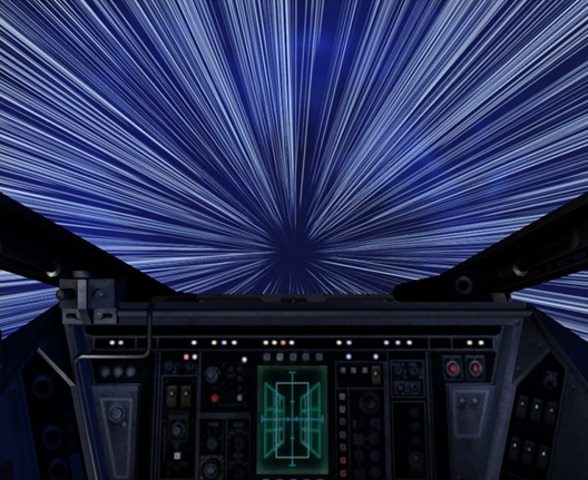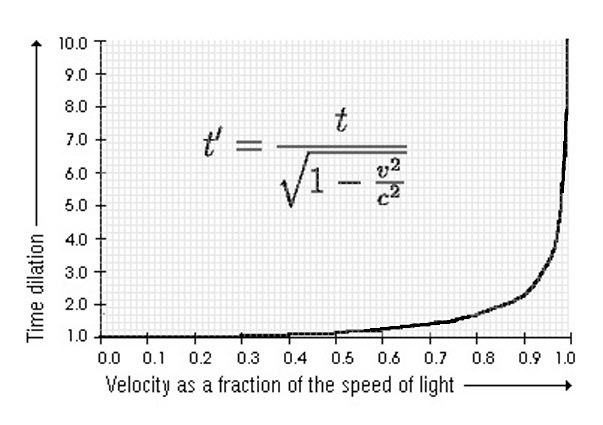Universe Today | Steve Nerlich | 2011 Oct 08
The recent news of neutrinos moving faster than light might have got everyone thinking about warp drive and all that, but really there is no need to imagine something that can move faster than 300,000 kilometres a second. Indeed, the whole idea is illogical.
Light speed, or 300,000 kilometres a second, might seem like a speed limit, but this is just an example of 3 + 1 thinking – where we still haven’t got our heads around the concept of four dimensional space-time and hence we think in terms of space having three dimensions and think of time as something different.
For example, while it seems to us that it takes a light beam 4.3 years to go from Earth to the Alpha Centauri system, if you were to hop on a spacecraft going at 99.999 per cent of the speed of light you would get there in a matter of days, hours or even minutes – depending on just how many .99s you add on to that proportion of light speed.
This is because, as you keep pumping the accelerator of your imaginary star drive system, time dilation will become increasingly more pronounced and you will keep getting to your destination that much quicker. With enough .999s you could cross the universe within your lifetime – even though someone you left behind would still only see you moving away at a tiny bit less than 300,000 kilometres a second. So, what might seem like a speed limit at first glance isn’t really a limit at all.
To try and comprehend the four dimensional perspective on this, consider that it’s impossible to move across any distance without also moving through time. For example, walking a kilometer may be a duration of thirty minutes – but if you run, it might only take fifteen minutes.
Speed is just a measure of how long it takes you reach a distant point. Relativity physics lets you pick any destination you like in the universe – and with the right technology you can reduce your travel time to that destination to any extent you like – as long as your travel time stays above zero.
That is the only limit the universe really imposes on us – and it’s as much about logic and causality as it is about physics. You can travel through space-time in various ways to reduce your travel time between points A and B – and you can do this up until you almost move between those points instantaneously. But you can’t do it faster than instantaneously because you would arrive at B before you had even left A.
If you could do that, it would create impossible causality problems – for example you might decide not to depart from point A, even though you’d already reached point B. The idea is both illogical and a breach of the laws of thermodynamics, since the universe would suddenly contain two of you – the other you having appeared out of nowhere.
So, you can’t move faster than light – not because of anything special about light, but because you can’t move faster than instantaneously between distant points. Light essentially does move instantaneously, as does gravity and perhaps other phenomena that we are yet to discover – but we should never expect to discover anything that moves faster than instantaneously, as the idea makes no sense.
We mass-laden beings experience duration when moving between distant points – and so we are able to also measure how long it takes an instantaneous signal to move between distant points, even though we could never hope to attain such a state of motion ourselves.
We are stuck on the idea that 300,000 kilometres a second is a speed limit, because we intuitively believe that time runs at a constant universal rate. However, we have proven in many different experimental tests that time clearly does not run at a constant rate between different frames of reference. So with the right technology, you can sit in your star-drive spacecraft and make a quick cup of tea while eons pass by outside. It’s not about speed, it’s about reducing your personal travel time between two distant points. And that has a natural limit – of zero.
As Woody Allen once said: Time is nature’s way of keeping everything from happening at once. Space-time is nature’s way of keeping everything from happening in the same place at once.
<< Previous

